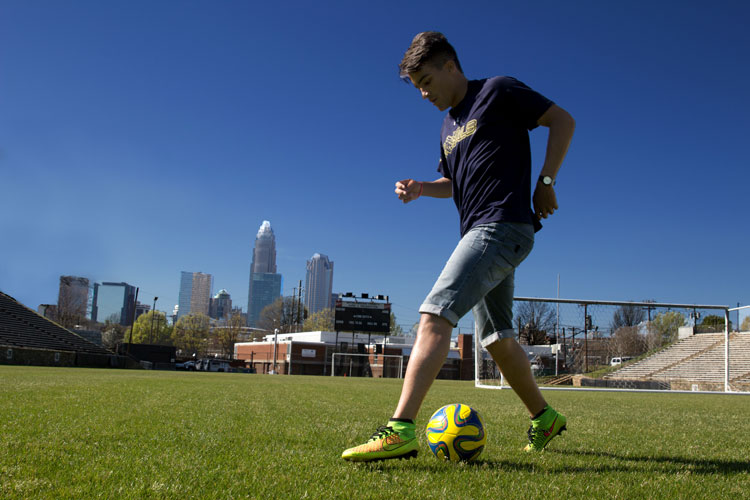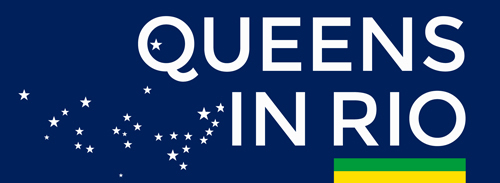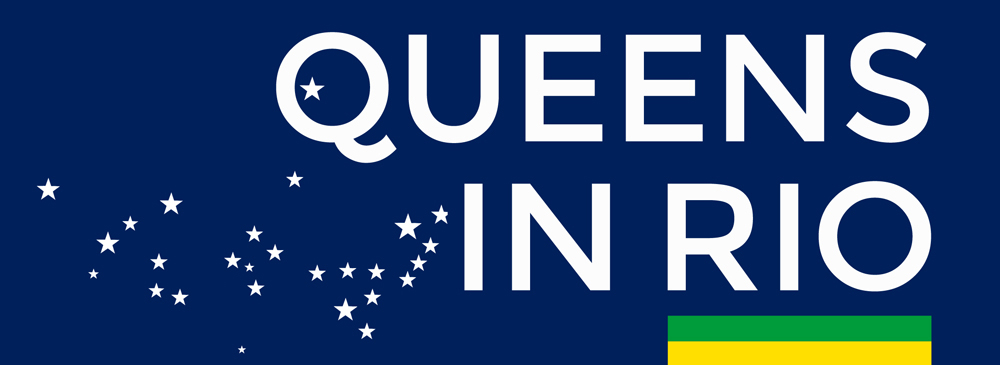Football. In the United States that word is synonymous with pigskins, passes to wide receivers, and hard hits, but for the rest of the world it represents a game of footwork, red cards and scoring goals. Brazil is known for some of the most creative and passionate football in the world. This summer the Brazilians are showcasing their skills during the Rio 2016 Olympic Games.
Luis “Dudu” Campos, a midfielder playing for the Queens University of Charlotte soccer team, grew up in Brasilia. He broke down three of the moves that every Brazilian knows, creating a quick crash course on what Americans should know before watching.
- “The first move…you guys call it scissors here but in Portuguese we call it pelalade. It’s pretty different but we see it a lot in Brazil. It’s when you roll the ball and you pass your feet over the ball like once, twice, three times. The idea is to fake a move and the defender is not going to know what you’re going to do. It’s all about trying to make him go the other way so you can clear a space, take a shot and try something.” While this move is not unique to Brazil, it gives insight to the unique and creative Brazilian style of play.
- The next move is when you ‘meg’ someone, “You can do it in a bunch of different ways it’s probably the main move that everyone gets excited about. Especially in Brazil, if you are playing on the streets the move counts more than the goal. We are all about that, trying to make fun of the opponent.” This move involves the attacking player pushing the ball between the legs of the defending player and continuing the attack. ‘Megging’ is the ultimate humiliation for any opponent.
- “The last move is called the rainbow. It’s when you pass the ball over the defender and it’s a pretty tough one.” This move involves the attacking player propping the ball between their legs and using their dominant leg to propel the ball over the head of the upcoming defender. It is a rare,but effective move.
Campos began perfecting his moves as a kid in Brasilia. He left home at 13 to play club soccer in a neighboring city, and at age 17 was invited to play in a tournament in Orlando where he was scouted to play college football in the United States.
“Most of the kids in Brazil are not able to play full-time and continue their education. Their only shot is to go for football. They just aim for one thing.” Football goes beyond sport in Brazil; it represents a lifestyle.
Soccer is the one Olympic sport with so many matches that many games are played outside of Rio, and competition actually starts before the opening ceremony. With knowledge of these three moves, viewers can watch the Brazilian team with a little more insight.

Queens midfielder Luis “Dudu” Campos of Brazil, demonstrates a pelalade. Photo by Queens 2016 journalism graduate Mary Stringini.

